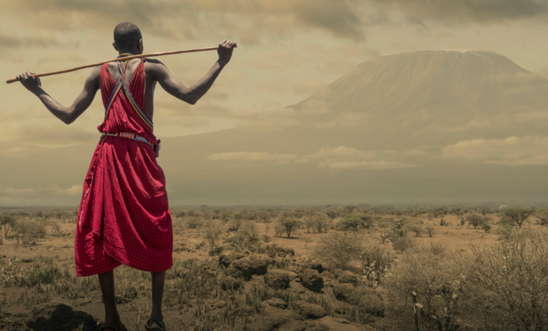
Press releases
COP15: Biodiversity conference 'fails' to protect Indigenous people's rights

COP15 aims to preserve biodiversity by calling on countries to commit to declaring 30% of the earth protected for conservation by 2030
Yet ‘30 x 30 agreement’ falls short of explicitly recognising Indigenous peoples’ lands and territories
‘States have failed to fully recognise Indigenous peoples’ immense contribution to conserving biodiversity’ - Chris Chapman
The “Global Biodiversity Framework” agreed at the COP15 Biodiversity Conference in Montreal, Canada is a missed opportunity to protect the rights of Indigenous peoples, Amnesty International said today.
The framework, known as the “30 x 30 agreement”, sets targets aimed at arresting the alarming decline in global biodiversity seen in recent decades. However, nations at COP15 fell short of explicitly recognising Indigenous peoples’ lands and territories as a separate category of conserved area, which ultimately threatens their rights.
The COP15 conference offered a once-in-a-lifetime opportunity to set ambitious goals aiming to protect the diversity of flora and fauna on the planet, said Amnesty, an ambition which hasn’t been fully realised.
Meanwhile, despite safeguards in the document, a number of Indigenous peoples remain opposed to calls to expand protected areas, given the appalling abuses that are committed in such areas in many countries.
Chris Chapman, Amnesty International’s Indigenous Rights Adviser, said:
“While the accord contains several highly important environmental targets and human rights safeguards, it fails to fully protect and uphold Indigenous peoples’ rights.
“States present at the conference did not wholly incorporate Indigenous peoples’ demand for their lands and territories to be fully recognised as a category of conserved area, a plea that was intended to protect them from the predations they often experience in areas such as state-run national parks.
“Consequently, states have failed to fully recognise Indigenous peoples’ immense contribution to conserving biodiversity, putting them at greater risk of human rights violations.
“The Global Biodiversity Framework negotiated at COP15 only partly acknowledges Indigenous peoples’ outstanding contribution to conservation. Despite constituting just 5% of the world’s population, Indigenous peoples’ lands host 80% of the world’s biodiversity.
“Considering the gaps in the framework, monitoring the deal’s implementation and combatting any human rights violations arising from the establishment of protected areas will now prove absolutely crucial.”
Severe repercussions
In a landmark resolution passed this year, the UN General Assembly agreed to recognise the right to a healthy environment as a human right, in a move that may transform efforts to fight climate change and protect the right to live in dignity for billions of people. Failing to address biodiversity loss will lead to severe repercussions for future generations, who will inherit its irreversible results. Biodiversity is an essential element of a healthy environment. The urgent need to address the loss of biodiversity is an essential step towards climate justice, and to protect the right to live in a safe, clean and sustainable environment.